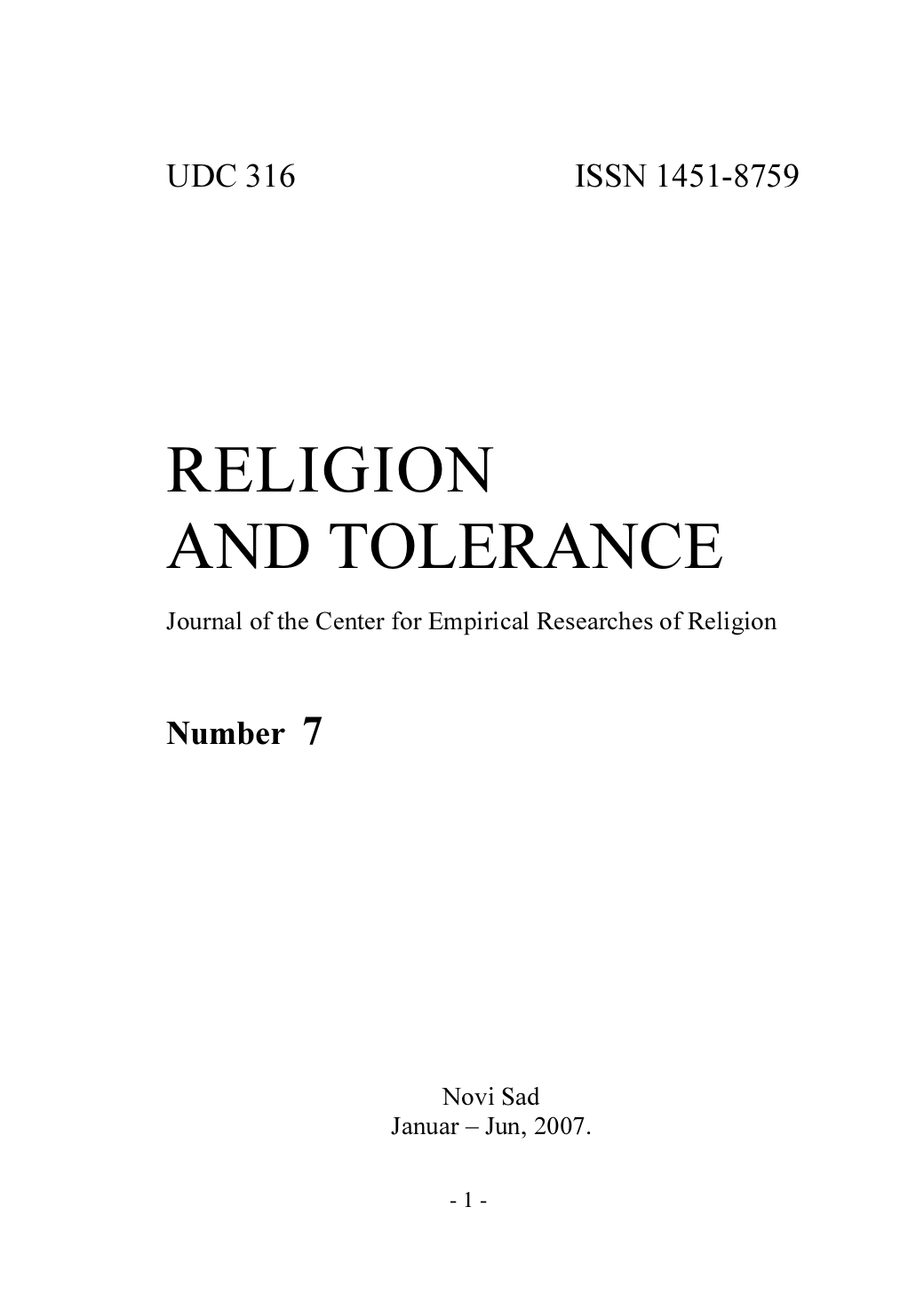THE LEGAL STATUS OF THE RELIGIOUS COMMUNITIES IN BULGARIA AND THE EUROPEAN STANDARDS
THE LEGAL STATUS OF THE RELIGIOUS COMMUNITIES IN BULGARIA AND THE EUROPEAN STANDARDS
Author(s): Nonka BogomilovaSubject(s): Social Sciences, Law, Constitution, Jurisprudence, Theology and Religion
Published by: Centar za empirijska istraživanja religije (CEIR)
Keywords: Bulgaria; State-Church relationships; European Standards; legal status of religious communitie
Summary/Abstract: The paper analyzes the recent changes and processes in the legal status of Religious Communities in Bulgaria in the framework of European Standards. Democratization of relationships between state and Church in Bulgaria is taking place in the context of the topical political process of accession of the country to the European Union /January 2007/. Democratization of that sphere requires changes and development in two basic directions: 1/harmonizing legislature on state-Church relationships with the international legal tools and the European legal standards; 2/forming a favorable social context for adequate and effective operation of the relevant laws. Since 2002 there is an operative Religious Denominations Act in the Republic of Bulgaria, which takes into account the basic European standards and international legal tools, but which has periodically been criticized on separate points by some parties and human rights organizations and by the structures of the European Commission, which implies that this law will evolve and be perfected in the future. This slow evolution is a result of the complex situation of the legislator in the country. He has to move between the Scylla of European imperatives and standards, presented in the criticisms by NGOs and by small religious communities, and the Charybdis of internal political circumstances, mass attitudes, the real social authority and social status of some of the religious communities. The conclusion is that the national legal texts are not only components of a universal, global, and standardized legal universe, but are embedded in a specific social context and the people involved, the balance between people generate the texts. Moreover, even if the texts of the laws were to be literally adopted and copied from the developed democratic countries, still the question of the application of these texts would remain with so much the greater weight, the question of their acceptance as an organic part of the respective culture.
Journal: Religija i tolerancija
- Issue Year: 2007
- Issue No: 7
- Page Range: 71-86
- Page Count: 16
- Language: English

